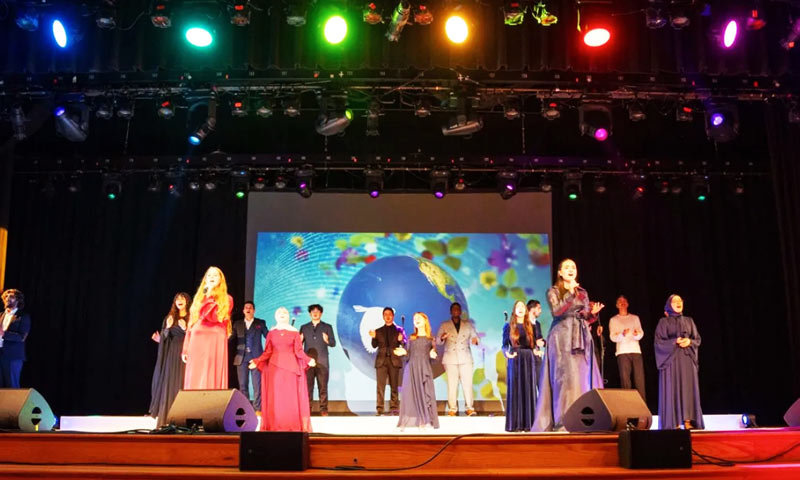After Reunion: A Quiet Transformation Within the Hizmet Movement

Date posted: October 31, 2025
Following the passing of the late Fethullah Gülen, the U.S. leg of the commemorative tour “After Reunion” concluded last weekend with a moving finale at Felician University’s Breslin Center for the Performing Arts in New Jersey. The 1,500-seat hall was filled to capacity. On the surface, it was a memorial; beneath it, a quiet transformation within the Hizmet Movement was unfolding.
At the opening, Dr. Erkan Ertosun, president of the Northeast America Civic Platform, offered a remark that framed the evening:
“Yes, Gülen is no longer with us, but his ideals and his action continue to live on.”
That single sentence revealed the night’s deeper meaning. Beyond emotion, the event reflected a sociological turning point. In Gülen’s absence, the Movement appears to be entering a new era—one grounded in the collective consciousness and values he championed.
Rebuilding Through Culture and Art
The program reached far beyond a traditional religious ceremony. Young artists opened with the poem “Let Your Name Be Heard,” followed by theatrical sketches depicting key moments in Gülen’s life: his childhood in Erzurum, his spiritual awakening in Edirne, his youth in Izmir, and his interrogations in Burdur.
Here, art was not mere ornament—it became the living language of collective memory. It offered a mode of expression that did not reject the tradition of sermons and preaching, but instead translated emotion into artistic form.
Onstage, more than a leader was being remembered—a culture was being renewed. The closing song, “A New World,” captured the spirit of the night with the line: “If we turn back, we are traitors.”
It sounded less like an oath of loyalty than a declaration of moral resolve.
The Birth of a Global Identity
Perhaps the most striking feature of the evening was the diversity of its performers: Said from Tanzania, Arseldi from Albania, Melike from Germany—each singing in a different language, yet in the same spirit. The scene symbolized the Movement’s transformation from a Turkish-rooted initiative into a truly global community.
Once known primarily for its educational and civic work in Turkey, the Hizmet Movement has evolved into a multicultural moral network—a shared spiritual space connecting people across continents under a common vision.
Each performance onstage felt like a form of collective healing. When the verses “This man is my teacher” were recited, the deep silence that filled the hall spoke of both longing and restoration.
Years of trauma—imprisonments, exile, and loss—have left profound scars on the Movement’s collective memory. Yet this program revealed how pain can be transformed into prayer, music, and art.
As Dr. İsmail Büyükçelebi observed:
“These programs restore life and energy to our community.”
A New Era for Hizmet
In the absence of Gülen, the Movement’s direction has become quieter, more cultural, and more universal. The spiritual universe he left behind now stands at the center. Beyond theological discourse, a moral language shaped through art, empathy, and conscience is emerging.
This evolution can be read as Hizmet’s answer to the changing language of our time—a reawakening through creativity, reflection, and shared humanity.
Author: Aydogan Vatandas
Source: Poli Turco
Tags: Dr. Erkan Ertosun | Fethullah Gulen | Hizmet (Gulen) movement | new jersey | North America |
























